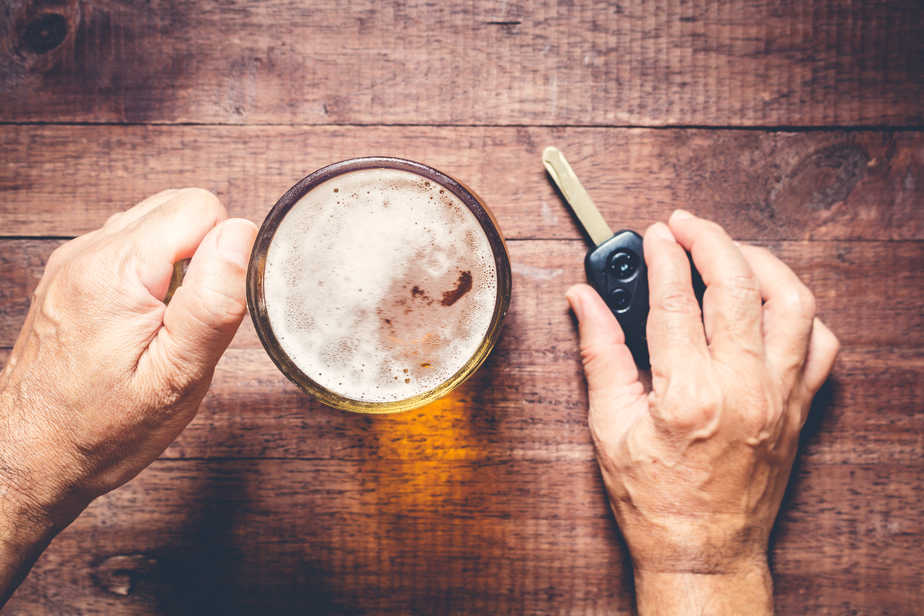Introduction
So, how long do you actually stay in jail for a DWI? The answer isn’t as straightforward as you might think. The duration of jail time varies and hinges on different factors, like the severity of the offense, the state’s laws, your previous convictions, and more.
Understanding DWI Charges Duration
When it comes to understanding DWI convictions, it’s vital to look at the specific laws of a state as these largely determine the length of the associated jail term. Everything from the driver’s blood alcohol concentration (BAC) to prior DWI convictions can drastically affect the sentence.
State DWI Laws
State DWI laws are pivotal in determining the severity of the penalties for a DWI offense. For instance, in Texas, a first offense can result in a fine of up to $2,000 and a jail term that ranges from three days to 180 days.
By contrast, states like New York penalize first-time DWI offenders with up to one year of jail time. Therefore, the specifics of state DWI laws significantly impact the length of jail time.
DWI Laws vs. DUI Laws
It’s also important to differentiate between DWI and DUI laws as the terms aren’t interchangeable in many states. In some states, DWI refers to driving while intoxicated with alcohol, while DUI signifies driving under the influence of either alcohol or drugs.
In others, DWI might constitute a more severe offense than a DUI, leading to longer incarceration. Therefore, the kind of charge you’re faced with can influence your jail time.
Minimum and Maximum Jail Time for DWI
The minimum and maximum jail time for DWI largely depends on the specifics of the infringement and on the state’s laws. Consequently, there are disparities in sentencing, even for first-time offenders.
First-Time DWI Jail Term
A first-time DWI charge does not necessarily mean you’ll be locked away for long. Several states impose minimal jail time for first offenses, usually not exceeding a few days or weeks.
However, repeat offenses or aggravating circumstances, like a high BAC or a minor in the vehicle, will significantly increase the jail term. To fully grasp the potential legal repercussions, one must delve deeper into the specifics of the offense.
Repeat DWI Penalties
Suppose you’re facing a second or subsequent DWI charge. In that case, you may be in for a more severe sentence, as repeat offenses highlight persistent reckless behavior, which legal systems often punish more harshly.
Generally, repeat offenders face escalated fines, extended license suspension, and longer incarceration periods. For instance, in Texas, a second DWI conviction can attract up to one year of jail time, while the third offense can mean two to ten years in state jail.
Aggravated DWI Penalties and Felony DWI Imprisonment
But what if there are aggravating circumstances? Aggravated DWI cases, such as those involving child endangerment, causing harm or death, or significantly high BAC levels, lead to even harsher penalties.
With some jurisdictions grouping such cases under felony DWI charges, they carry severe punishments, including prolonged imprisonment, possibly ranging from a few years to a decade or more.
How a DWI Attorney Can Help
Confronting a DWI charge isn’t something you need to do alone. The legal complexity and high stakes make it crucial to have a professional on your side. A DWI attorney can make all the difference, from providing legal advice to representing you in court and fighting to minimize your sentence.
Finding a DWI Attorney
Finding the right DWI attorney can be a game-changer. It’s about looking for a legal professional with experience in handling DWI cases and a good track record. You need an attorney who understands the nuances of DWI law and can effectively advocate for you.
Conclusion
Wrapping up, jail time for a DWI offense isn’t a one-size-fits-all penalty. Whether a first-time offender, repeat violations, or facing an aggravated charge, the state laws and specifics of your case will determine the length of incarceration. However, with a skilled DWI attorney on your side, you can navigate the legal waters and potentially mitigate the penalties. Remember, each DWI case is unique, so understanding your position and seeking legal help is paramount.
For expert advice and further details on this topic, visit our blog or contact us now. We’re available for immediate assistance guiding you every step of the way. Better safe than sorry – so reach out today.
Jail Time Duration for DWI - Frequently Asked Questions (FAQ)
Typically, for a first-time DWI offense, the jail time can range from a few days to six months depending on the state’s laws. However, exceptions exist, especially if the DWI incurred involved aggravated circumstances, such as a high BAC or damage to property or persons.
Yes, a DWI is considered a serious crime because it endangers not only the driver’s life but also the lives of others on the road. Penalties for the crime can range from fines and license suspension to jail time, depending on the specifics of each case.
In many states, a DWI conviction stays on your record indefinitely. However, some states permit “expungement” of the crime after some years have passed without any further legal trouble. This removal process varies from state to state and often requires the services of a law attorney.
A DWI attorney, with their in-depth understanding of DWI laws and experience handling similar cases, can provide invaluable assistance in your case. They can explain your charges, rights, and possible defenses, represent you in court, and work towards achieving the best possible outcome for your case, such as reduced charges, lighter penalties, or even case dismissal.
In most states, a first-time DWI is usually categorized as a misdemeanor. However, repeat offenses or DWIs involving aggravating factors like high BAC levels, bodily injury, or child endangerment can be elevated to felony status, attracting stricter penalties, including lengthy jail time.

